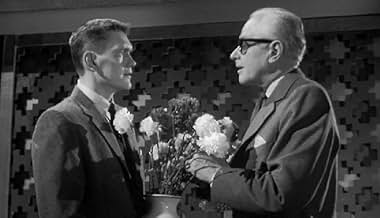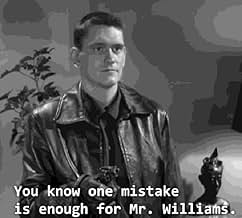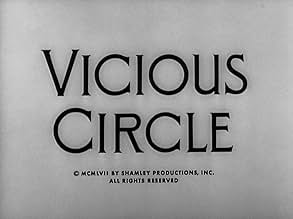A hired killer reluctantly sets out to kill his own girlfriend as ordered by his crime boss, a man who won't tolerate failure.A hired killer reluctantly sets out to kill his own girlfriend as ordered by his crime boss, a man who won't tolerate failure.A hired killer reluctantly sets out to kill his own girlfriend as ordered by his crime boss, a man who won't tolerate failure.
- Director
- Writers
- Stars
- Director
- Writers
- All cast & crew
- Production, box office & more at IMDbPro
Featured reviews
Excellent plot
LET ME KNOW WHEN YOU'RE DEAD.
York, not a particularly good guy here, is employed by dapper villain George Macready. He was made for this role, portraying the ringleader for a league of assassins. York is the star quarterback, who may be resting on his laurels. To get him off and running again, Maccready makes an offer he can't refuse -- kill your gal friend, because she's cramping your style -- or we'll kill YOU.
Potent stuff, written by Bernard Schoenfeld, who wrote the classic women's prison film CAGED in 1950. He also wrote a slick film noir, starring Lucille Ball, THE DARK CORNER (1946).
I agree with another reviewer, there's a faint gay theme here, strictly tabu in the 50s. Macready's character, as much as he is domineering and arrogant, may also have been snubbed by York's character and the fact he has a female companion? Why not get her out of the picture.
The acting nails it, particularly George Macready, directed by actor Paul Henreid (CASABLANCA) who gets the best performances from his two leads.
SEASON 2 remastered Universal dvd box set. 2006. All seven seasons are now on dvd in a single box set. Released 2022.
Where's the twist???
The show stars one of the more improbable actors for this role, Dick York. Manny (York) is a young punk who wants to move up in organized crime so he does everything his boss (George Macready) tells him...and that sometimes involves killing people. But Manny's girlfriend is a liability...and Mr. Williams, the boss, wants her dead.
No twist at all in this one....just Dick York being vicious and ultimately getting his just reward at the end. So disappointing.
A Risky Departure
Younger viewers may not be aware of how forbidden the whole topic of homosexuality was in both movies and TV of the 1950's. In short, the topic was treated as though it simply didn't exist. A more obvious censorship example is the A-budget Cat on a Hoot Tin Roof (1958) in which the theme from the Tennessee Williams play is airbrushed from the screenplay, rendering the movie itself darn near incomprehensible. Now, I'm sure I saw this Hitchcock entry the first time around, but it was only on recent viewing that the subtext jumped out at me. Then too, I don't see how the innuendo could have been unintentional on the part of writer and producer, which makes me wonder why such a risk with time and money was taken. I expect there is an inside story here. But what would it be, except as another instance of this cutting-edge series pushing the envelope.
Excellent episode dealing with important themes
Did you know
- TriviaLast role of Mickey Kuhn. Additionally, his two previous roles were also for Alfred Hitchcock Presents in back-to-back showings, all in the same season: The End of Indian Summer (1957) and One for the Road (1957).
- GoofsMr. Williams says that Christmas is the day after tomorrow, so it is December 23rd when he gives Manny a job to complete. In a later scene, he says it has been a week since their last discussion, therefore, it must be December 30th. In this scene, Mr. Williams says that New Years Eve is a few days away when it is actually the next day.
- Quotes
Vincent Williams: People with rash ideas must be put away for their own good.
Manny Coe: I don't get it.
Vincent Williams: Really, Manny. Come now, you're not that naïve.
Manny Coe: But she loves me, Mr. Williams.
Vincent Williams: That's the beauty of it. To triumph over that little impediment of love. And after it's done, Manny, think of the elation. Free from emotional annoyances.
- SoundtracksFuneral March of a Marionette
Written by Charles Gounod
Details
- Runtime
- 30m
- Color
- Aspect ratio
- 1.33 : 1
















